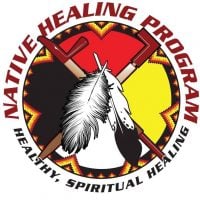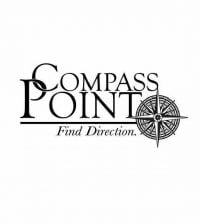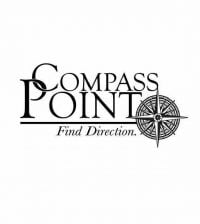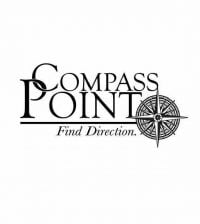About Native Healing Program in South Dakota
The Native Healing Program in Rapid City, South Dakota provides comprehensive care through an outpatient facility and two residential inpatient treatment locations, located in Pine Ridge and Rapid City. Their mission is to provide the highest quality care to those struggling with addiction and substance abuse, providing a safe environment and culturally sensitive approaches to treatment. They also offer individual, family, and group counseling, case management, aftercare services, and education on relapse prevention.
Native Healing Program provides evidence-based treatment and recovery services, such as cognitive behavioral therapy, trauma-informed strategies, dialectical behavior therapy, and motivational interviewing. They also offer various types of group therapy, including grief and loss, anger management, relapse prevention, and trauma-informed sessions. Their staff provides education to their clients and their family members on topics such as self-care, relapse prevention, and healthy coping strategies.
Native Healing Program is accredited by the Commission on Accreditation of Rehabilitation Facilities (CARF) and licensed by South Dakota Department of Social Services. The team also holds several awards, including a South Dakota Torchbearer Award for Excellence in Treatment, Prevention and Education Services, presented by United States Senator Tim Johnson and Rapid City mayor, Sam Kooiker. They also offer a family program to foster family engagement in the recovery process and ensure that their clients continue to receive the care they need once they complete the program.
Genders
Ages
Modality
Additional
Accreditations
State License
SAMHSA
Conditions and Issues Treated
Many people need to recover from substance abuse to live a healthy life. In the end, if you can get through all the steps: detoxifying your body, rehabilitation after some time or when needed (depending on the type), and recovery while also receiving therapy support throughout the process, it can be worth it.
A detoxification center is a common place to start the recovery process from substance abuse. With your body and mind restored, you can continue to heal without the lingering effects of drugs.
Many people who struggle with opioid addiction need to attend specific programs like methadone , Suboxone or Vivitrol clinics.
These types of programs will provide the patient with legal, prescription medications that can help them overcome their cravings for illegal opioids like heroin or fentanyl . If the patient has a chronic condition like Hepatitis C, they must undergo treatment before they can begin taking these medications.
Dual Diagnosis is a specific relationship between two or more disorders that have the same symptoms and can sometimes be treated together. This is used in the treatment planning process when dealing with drug addicts. Dual diagnosis can be viewed as a chronic medical condition that has comorbid psychiatric disorders.
Although addiction and a mental illness may have separate symptoms that are not easy to detect, they often go hand in hand. Many times, drug abuse is a direct result of the mental illness. In other words, treating the addiction will not resolve all of your issues. Unless you also treat the underlying mental illness, you will not be successful in achieving sobriety.
Levels of Care Offered
This center offers a variety of custom treatment tailored to individual recovery. Currently available are Aftercare Support, Drug Rehab, Dual-Diagnosis, Outpatient, with additional therapies available as listed below.
An outpatient treatment program is set up to help with alcohol or drug addiction, or a co-occurring disorder. The patient must attend the South Dakota facility for their therapy and other programs but are able to return home each night. The frequency of mandatory attendance decreases after much of Native Healing Program‘s program is complete.
Aftercare is a term that’s used to refer to any sort of continuing care offered for a drug addict who has voluntarily entered a rehabilitation program. This type of care can be provided in several settings, including outpatient therapy sessions after the addict has completed an inpatient program. There are also 12-step support groups, such as Alcoholics Anonymous, which can provide additional help for addicts trying to stay sober.
Therapies & Programs
Individual Therapy is a critical component of addiction recovery. Therapists work with patients to identify the root of their addiction and figure out how to better handle the issues that led to them using drugs. Individual Therapy is the one-on-one session where people meet with their therapist. Individual therapy provides a safe space for people to open up and discuss personal and sensitive topics which they may not feel comfortable discussing in a group setting.
Couples therapy at Native Healing Program focuses on addiction treatment for the addict and their spouse. The addict’s family, not just the addict, can benefit from this form of therapy. Couples therapy addresses communication problems, trust issues, lack of intimacy, and abuse in intimate relationships. Couples therapy can help rebuild trust between partners, which increases the chances for successful treatment and sustained recovery.
Intimate relationships can be damaged during addiction, and professional help may be necessary to rebuild the often destroyed trust and love. Couples therapy at Native Healing Program helps couples improve communication and rebuild trust. Either or both partners will be helped by this treatment administered by professionals. This treatment can also help one or both partners if addiction is the problem.
Family therapy will also help families realize that the addiction is not their fault. For many years, people blamed themselves for an addict’s behavior and felt that they had done something wrong. This is not the case. Addiction is a disease, and it can strike anyone, even if their life seems fine from the outside. It can bring a lot of shame to a family when they have an addict in their midst, but if everyone is open and honest with each other, then they can help everyone stay in recovery.
Group Therapy is utilized by drug treatment centers like Native Healing Program to provide the recovering drug addict with a platform to talk about their feelings and experiences. It also provides for an opportunity to learn from other addicts who have successfully overcome their addiction.
Group Therapy is employed in lectures, seminars, or discussion groups (the latter two are typically conducted as “therapy groups”). It is recommended that all group members be recovering addicts for this type of therapy to work (though it does not exclude others with lived experience).
Trauma therapy is a clinical process that helps individuals deal with mental stress often caused by traumatic events. It is generally done for children, teenage victims of sexual assault, and war veterans. The therapist helps the person identify, understand and work through the problem. This is done with the help of talking about it in group or one-on-one counseling sessions. Therapists use relaxation, role-playing, art, and music to help the person open up about what is bothering them.
Cognitive behavioral therapy is also a popular service for individuals living with addiction. This type of supportive treatment uses both one-on-one counseling and group sessions to teach addicts how to identify thoughts, behaviors and emotions that might increase their risk of relapse.
These professionals can help addicts develop coping skills for managing stress, improving self-esteem and overcoming triggers. They might also use behavioral therapy to help addicts learn how to avoid cravings and warning signs that could lead them back into addiction.
Therapy can be used as a step-down from inpatient treatment or as the primary method of overcoming an addiction. No matter which option is best for the addict, they will teach important emotional coping techniques, which can make it easier for addicts to get through the tough days.
Training in improved life skills helps those recovering from addiction feel more capable of self-care. Native Healing Program are daily skills that give the person the tools they need to survive.
The therapy covers practical activities like cooking, job hunting, social interaction, and money management, helping to fill in the knowledge gaps caused by addiction.
These life skills help the person self-manage their recovery and stay on track. It also reduces relapse risk as they gain confidence in their day-to-day abilities.
Additional Details
Specifics, location, and helpful extra information.
Rapid City, South Dakota 57702 Phone Number(605) 342-8925 Meta DetailsUpdated November 25, 2023
Staff Verified
Native Healing Program Patient Reviews
There are no reviews yet. Be the first one to write one.
Rapid City, South Dakota Addiction Information
Although South Dakota is a sparsely populated and somewhat isolated state, it is equally impacted by the national drug epidemic. Substance abuse remains a significant issue that leads to injuries and deaths every year. 17.27% of all deaths between 2008 and 2017 were drug and alcohol-related. Methamphetamines and alcohol are the most commonly abused drug of abuse for those entering treatment in South Dakota.
There were 272 overdose deaths in South Dakota in 2016. This is the highest number on record and more than double from 2015. Alcohol was involved in 36% of all accidents according to the National Highway Traffic Safety Administration (NHTSA), up from 20% in 2015. When looking for a drug treatment facility in Rapid City, South Dakota some of the most common treatment methods include outpatient rehab, dual diagnosis, and aftercare programs.
Treatment in Nearby Cities
- Custer, SD (26.8 mi.)
- Chamberlain, SD (197.1 mi.)
- Rosebud, SD (134.3 mi.)
- Aberdeen, SD (253.9 mi.)
- Redfield, SD (241.0 mi.)
Centers near Native Healing Program
The facility name, logo and brand are the property and registered trademarks of Native Healing Program, and are being used for identification and informational purposes only. Use of these names, logos and brands shall not imply endorsement. RehabNow.org is not affiliated with or sponsored by Native Healing Program.








